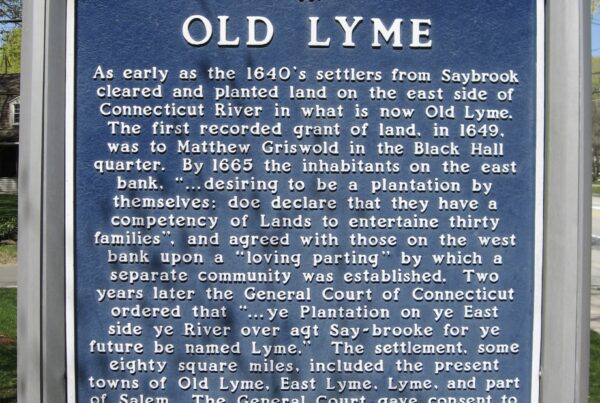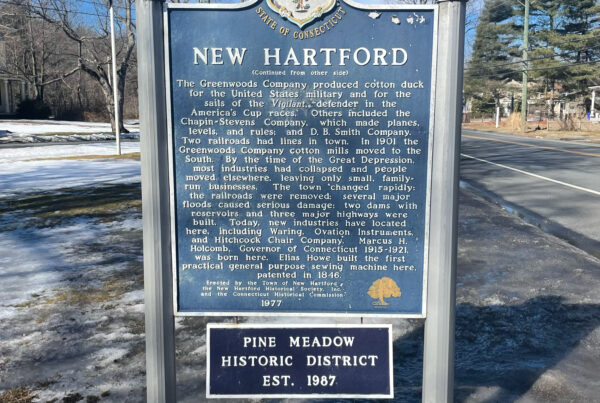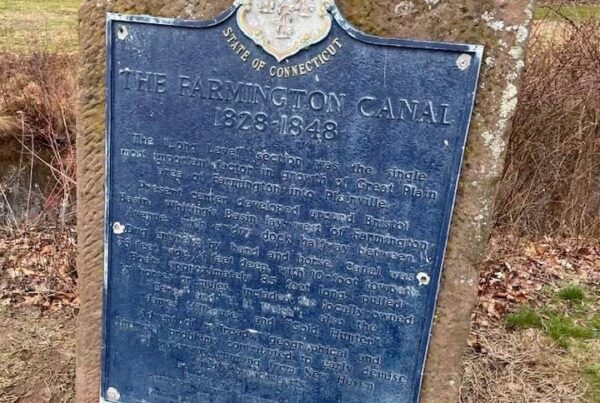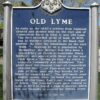
Meriden, Connecticut:
1661 – Meriden area first settled when Jonathan Gilbert is granted land by Connecticut Colony and employs Edward Higbee to operate an inn.
1670 – Greater part of present-day Meriden lands placed under jurisdiction of Wallingford.
1728 – Separate church parish, named after Gilbert’s farm Merridan, is established by the General Assembly.
1806 – Meriden separated from Wallingford and organized as a town.
1867 – Meriden incorporated as a city.
1922 – Town and City of Meriden consolidated.
Since the 19th Century Meriden has demonstrated itself to be a versatile manufacturing community. Its silver industry has grown to such proportions that Meriden is nicknamed the “Silver City of the World.”
(Continued from other side).
Captain John Couch, responding to hostilities with the British at Lexington, left this area April 23, 1775, commanding the Meriden militia: John Allen, Christopher Atwater, Moses Baldwin, *Divan Berry, Samuel Briggs, John Butler, Samuel Collins, Asael Deming, Israel Hall, Jr., Joel Hall, *Moses Hall, Rufus Hall, Samuel Hall, *Benjamin Hart, *Insign Hough, John Hough, Phineas Hough, Aaron Hull, David Ives, Elnathan Ives, Enos Ives, Samuel Johnson, Epaphras Knott, Isaac Livingston, *Phineas Lyman, Daniel McMullen, *Ephraim Merriam, John Merriam, John Pearce, *Benjamin Rice, *Ezekiel Rice, Gideon Rice, Samuel Rice, Joseph Shaylor, Seth Smith, Bela Warner, *Jonathan Yale, *Nathaniel Yale
*Buried in Broad Street Cemetery
Erected by the American Revolution Bicentennial Commission: City of Meriden and the Connecticut Historical Commission.
CT Blue Sign 39 of 169.
(In my opinion, the Silver City deserves more appreciation for its significant contributions and inventions throughout Connecticut history.)
View this post on Instagram
View on Instagram: https://www.instagram.com/p/CtAKi5-vsIT/




